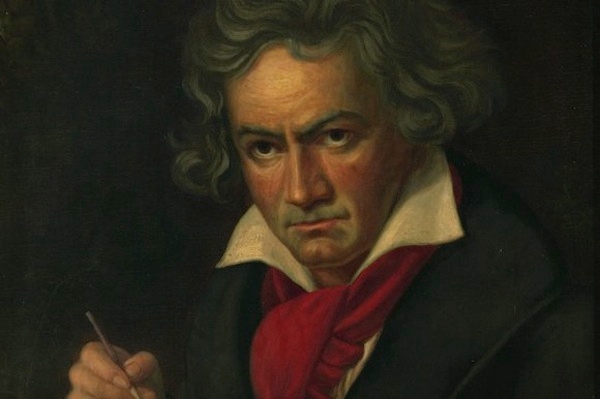I’ve just been reunited with a man whose pungent and patronising views on great composers have haunted me for more than 30 years. His name is Gervase Hughes, and I’ve discovered from Wikipedia that he was an upmarket travel agent who died in 1984. I had no idea, because I knew him only through his book Fifty Famous Composers, published as a Pan paperback in 1972, which mentions his short career as an opera conductor but not his main source of income, which was apparently ‘offering European tours in Rolls-Royce cars’.
I lent Fifty Famous Composers (an expanded edition of The Pan Book of Great Composers, 1964) to a friend when I was at university, explaining that it was the wittiest and wisest introduction to the classical canon ever written. He promptly lost it. I was cross, but in a sense it didn’t matter. As a teenager I’d read and reread Hughes’s 50 pen-portraits of composers so often that I knew his judgments by heart. I’m sure I passed some of them off as my own, too, since Fifty Famous Composers is a magnificent bluffer’s guide. That’s no bad thing. Young people rushing to learn about a subject need ready-made opinions to serve up in a hurry. And, my goodness, Gervase Hughes had some beauties in his collection.
Thanks to AbeBooks.co.uk, miraculous reuniters of lost titles with their owners, I now possess a copy of Fifty Famous Composers again and can quote the exact words. Here’s an observation on late Beethoven:
Harsh music remains harsh no matter who put his name to it. Rather therefore than pay the customary lip-service to these extraordinary works (for their mysterious profundity, ethereal grandeur, inspired anticipation of the methods of Béla Bartók, etc.) let us recognise and accept that they are in parts rough-edged and excuse it by recalling that they were put to paper at a time when Beethoven had become stone-deaf: it is significant that alongside passages of almost divine beauty are some which in theory ought to sound well but in practice don’t…
Looks better on the stave than it sounds to the ear — what a clever snippet to produce, Stephen Potter Oneupmanship-style, should the subject of Beethoven crop up at a dinner party. On reflection, I don’t agree with Hughes: Beethoven knew just how harsh the dissonances of the vivace movement of his last string quartet Op. 135 would sound. But I’d read Fifty Famous Composers long before I heard the music. So much of my early listening involved testing Hughes’s verdicts — and, more often than not, he nails it. On Mendelssohn, for example:
The attempts to evoke atmosphere à la Weber usually have a touch of artificiality about them — not that they are necessarily for that reason any less effective in their context. The fairy music from A Midsummer Night’s Dream is captivating, but it suggests not so much fairies as a well-drilled troupe of dainty ballerinas.
Some of Hughes’s little asides have the quality of ear-worms: ‘Camille Saint-Saëns complained of Franck’s Prelude, chorale and fugue that the chorale wasn’t a chorale and the fugue wasn’t a fugue. He could hardly deny him the right to call his first movement a prelude.’ The gentle defence of composers such as Franck, who were dismissed by musical sophisticates in the middle of the 20th century, is one of the delights of Fifty Famous Composers. In the case of Bruckner, the defence is more than gentle — it’s magnificent:
Ill-wishers chose to make out that this most worthy fellow was little better than a village idiot, but village idiots do not write symphonies which posterity acclaims as masterpieces, and so the unworldly Bruckner has the last laugh over spiteful sniggerers.
Before I read that, I’d been got at by a music teacher who was definitely a sniggerer. Hughes persuaded me to listen with open ears — and, since Bruckner is now my favourite symphonist, changed my life. On the other hand, as I said earlier, some of his judgments are patronising — but that doesn’t make them wrong. Grieg was ‘par excellence a composer for middlebrows’, he writes; in Liszt the flame of genius, ‘though often flickering, nevertheless shone brightly enough to light the stairway to the master-musicians’ gallery’.
So far as I know, there is no beginners’ guide to great composers currently in print that matches Gervase Hughes for frankness, nuance and elegance of writing: if there were, perhaps Britain wouldn’t suffer from astonishing levels of musical illiteracy even among young musicians. I’ve just checked AbeBooks.co.uk: they have ten copies of Fifty Famous Composers in stock and eight of The Pan Book of Great Composers. Grab one if you possibly can.







Comments